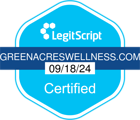Relapse is often one of the most feared—and misunderstood—aspects of the recovery journey. For many who struggle with addiction, the question isn’t if relapse will occur, but when and why. Yet relapse does not mean failure—it can be part of the process, and knowing common triggers and smart prevention strategies can help people stay on the path toward healing.
In this article, we’ll dive deeply into:
- What relapse really means
- The most common relapse triggers
- Proactive strategies to prevent relapse
- How Green Acres Wellness supports long-term recovery
If you or someone you love is navigating addiction recovery, keep reading. Our mission at Green Acres Wellness is to empower you with both hope and tools.
What Is Relapse — And Why It Happens
Relapse doesn’t always look like a full return to previous substance use patterns. It can begin as a lapse—an isolated use—or even just thinking about using again. Recognizing relapse early can make a difference.
Relapse often occurs because addiction is a brain disease: neural pathways become rewired over time, making triggers more powerful and habits harder to break. Stress, emotional challenges, and environmental cues can reignite these pathways.
Research supports that relapse is a predictable phenomenon: stressors or cues associated with past use can evoke strong cravings. (arXiv) In fact, relapse risk is highest in the first year after treatment, but it can occur years later if triggers aren’t managed.
That’s why relapse prevention is an integral part of any robust recovery program—not something to tack on afterward.
Common Relapse Triggers (and What They Teach Us)
Understanding triggers is key. Knowing what to look for means you can preemptively respond rather than be caught off guard. Below are some of the most common relapse triggers:
- HALT states – Hungry, Angry, Lonely, Tired
When basic needs aren’t met, cravings intensify. These triggers are deceptively simple but powerful. (Gateway Foundation)- Tip: maintain regular self-care routines (meals, rest, social support) to reduce vulnerability.
- Stress and emotional distress
Unresolved emotions—grief, guilt, shame, anger—can push someone toward old coping mechanisms. (Gateway Foundation)- Tip: use healthy coping tools like journaling, therapy, breathing exercises, or trusted support systems.
- Environmental & social cues
Returning to places, acquaintances, or routines tied to past substance use can trigger cravings.- Tip: avoid high-risk settings early in recovery; build new social and activity frameworks.
- Negative thinking and internal pressure
Thoughts like “I am weak” or “Just one won’t hurt” open the door. (eudaimoniahomes.com)- Tip: practice cognitive tools—challenge distorted thoughts, reaffirm your reasons for sobriety.
- Trauma, grief, or unresolved issues
Many in recovery carry untreated trauma or losses. When triggered, the emotional pain can drive relapse. (eudaimoniahomes.com)- Tip: integrate trauma-informed therapy into recovery from the start.
- Isolation & low support
Recovery is relational. Without accountability or connection, people are more vulnerable. (Empowered Recovery Center)- Tip: engage in support groups, peer recovery, or accountability partners.
- Celebratory or “permission” thinking
Milestones (birthdays, anniversaries) sometimes become high-risk because people convince themselves they “deserve” to use.- Tip: plan sober celebrations; anticipate temptations and have a relapse-prevention plan in place.
Proactive Strategies to Prevent Relapse
Knowing triggers is only half the battle. Here are concrete steps people in recovery (and their supporters) can take to fortify resilience:
1. Create a Relapse Prevention Plan (RPP)
A tailored RPP should identify personal triggers, high-risk situations, early-warning signs, and coping strategies. It acts as a roadmap you can consult when things feel shaky.
2. Use “if–then” coping strategies
For each known trigger, define a fallback plan.
- If I begin to feel lonely, then call my sponsor or mentor.
- If I walk by an old hangout, then take a detour or call someone first.
3. Build a support network
Consistent connection to groups, sponsors, therapists or recovery peers helps buffer stress. Social accountability reinforces healthier habits.
4. Integrate ongoing therapy
Long-term therapy (CBT, dialectical behavior therapy, trauma work) helps people grow emotional resilience and evolve coping patterns.
5. Engage in healthy replacement behaviors
Replace substance use with meaningful activities—exercise, art, volunteering, nature walks, spiritual or mindfulness practice. (eudaimoniahomes.com)
6. Monitor and manage stress
Routine practices like mindfulness, meditation, yoga, journaling, and breathwork reduce reactivity when triggers come.
7. Use medication or medical support when needed
For some, medication-assisted treatment (MAT) or medications prescribed to manage cravings or co-occurring disorders can be life-saving. Always under medical supervision.
8. Learn from relapse — don’t shame
If relapse happens, treat it as a signal—not a moral failure. Review what led to it, revise your RPP, reach out for support, resume treatment immediately.
Why Green Acres Wellness Is Here for You
At Green Acres Wellness, we design recovery programs that go beyond detox and short-term support. We integrate evidence-based therapy, holistic wellness, and long-term relapse prevention to help clients build thriving, sustained lives.
Here’s how we support relapse prevention:
- Individualized relapse prevention planning from day one
- Trauma-informed therapy to address root causes
- Group therapy & peer support to foster connection and accountability
- Holistic practices (mindfulness, yoga, nature, nutrition) to strengthen resilience
- Aftercare and alumni programming so progress doesn’t end at discharge
- Family involvement & education to create a more supportive home environment
We believe in healing the whole person—mind, body, spirit—so each person can respond to life without turning back to substances.
Encouraging Words & Call to Action
Recovery is not linear. There will be ups and downs, doubts and small detours—and that’s okay. What matters is staying committed, staying connected, and staying prepared.
If you or someone you love is looking for a recovery program that emphasizes relapse prevention and long-term wellness, Green Acres Wellness would love to talk. Reach out today for a free consultation, tour, or assessment. You don’t have to walk this path alone.
GAW Get Help Now FormGAW Get Help Now

